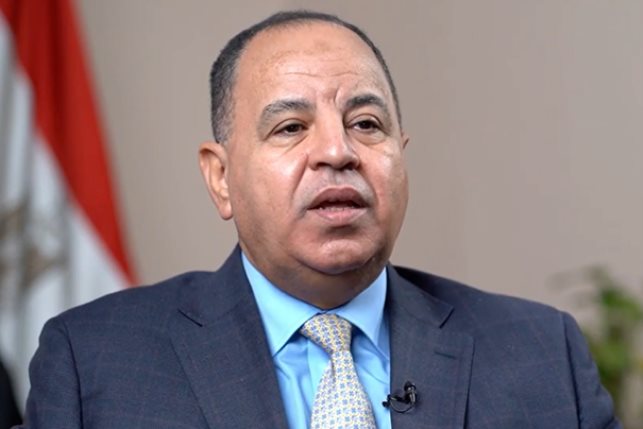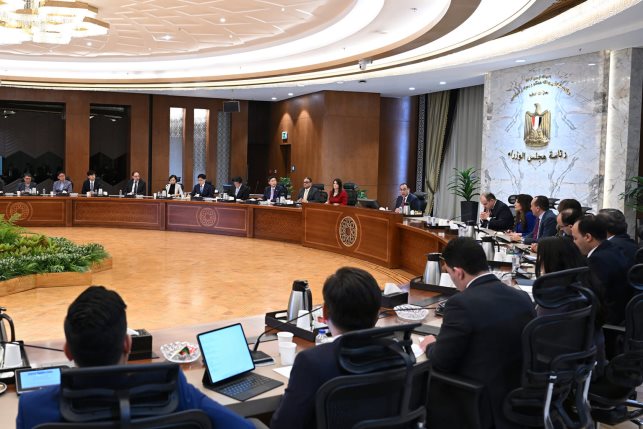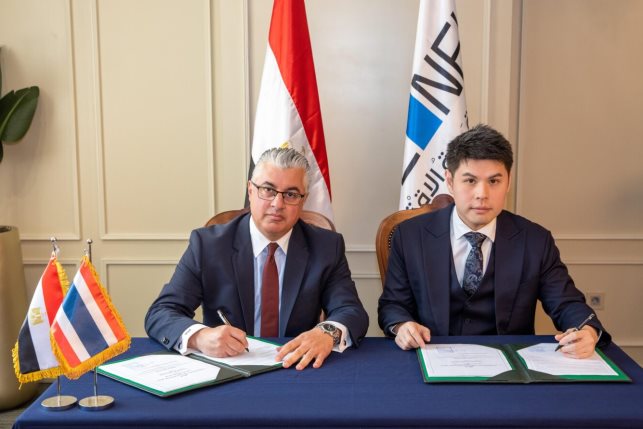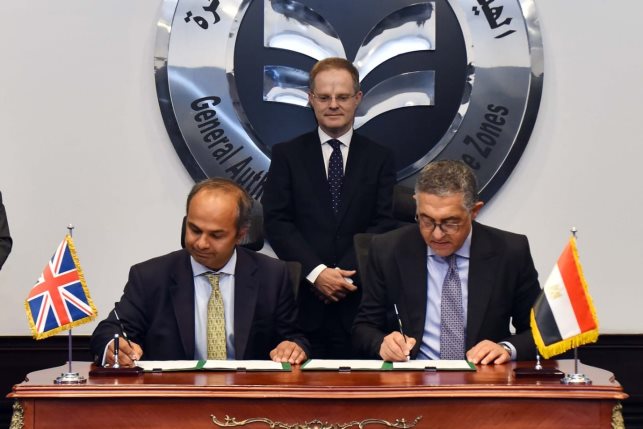Faster, Stronger, Better Growth with PepsiCo's North Africa CEO Mohamed Shelbaya
The CEO sat down with Business Today to discuss his thoughts on the current business landscape for FMCGs, his new role leading PepsiCo’s North Africa arm after years as their CEO for Egypt, and the company’s commitment to regional communities and sustainability
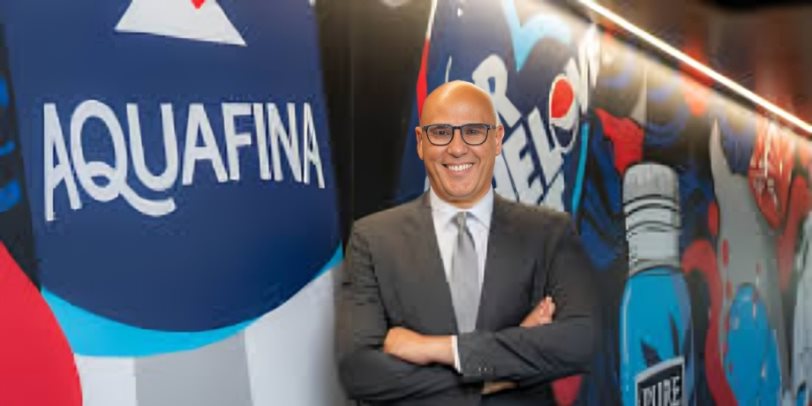
“When you have countries that have volatile and unstable macro economies—including weak currencies, high rates of inflation, rising interest rates, and uncertainty about the direction of economic policy, it presents a difficult backdrop to do business,” says PepsiCo’s North Africa CEO, Mohamed Shelbaya.
As local and regional businesses place the pandemic in their rearview mirror, executives are cautiously optimistic while considering the many challenges they have tackled in the last 12 months – the pandemic’s long-lasting repercussions, the Russian/Ukrainian conflict’s impact on the global economy, and other economic turmoil.
For Shelbaya, navigating the uncertain economic climate while planning for expansion and growth is all about agility and a collaborative mindset, viewing it as an opportunity to lead with purpose and play the important role of encouraging sustainability, partnerships, and supporting communities.
The CEO sat down with Business Today to discuss his thoughts on the current business landscape for FMCGs, his new role leading PepsiCo’s North Africa arm after years as their CEO for Egypt, and the company’s commitment to regional communities and sustainability.
Firstly, congratulations on your new position as CEO of PepsiCo North Africa. Could you share with us what your new role entails?
Thank you, it is truly a fantastic and challenging time to be leading a company like PepsiCo in the region.
I am honored to do this role, and I have an amazing team that will allow us to achieve our vision of being the leading beverage and snack company in the region.
PepsiCo has a very strong and impactful presence in the area through its large investments. The North African region itself has been a key focus of PepsiCo’s vast expansionary plans within the African continent, and we will continue to build and capitalize on that. There is a lot of development to do in these markets, but the potential is vast.
The North African region is part of one of PepsiCo's biggest and most important business sectors – the AMESA region (Africa, Middle East, and South Asia).
Without a doubt, given the African continent’s strategic location and large population, it has become one of the key territories at PepsiCo. North Africa is a leading region that encompasses a wide range of key markets that are a core part of PepsiCo’s global multinational presence, with Egypt as a key market leader.
There are tremendous business opportunities and similarities to Egypt [regarding NA countries]. This role will allow me to build on our continued success in Egypt, and further build and expand our business and portfolio to the neighboring markets.
What is your vision for the new role and its parameters?
My vision is simple and ambitious – to build and expand our beverage and snack business in the region.
I would love to create a PepsiCo stronghold by being the best possible partner through strategic alliances, driving game-changing innovations, and delivering a strong level of growth.
For PepsiCo’s AMESA sector, North Africa is the largest and most important business region, with Egypt at its helm. The vision is to invest in those markets, emphasize consumer-centricity and quality, and eventually have North Africa grow and be a hub for PepsiCo.
I also see lots of potential across all the North African markets and would want to capitalize on the proximity of these markets and create synergies across them in order to be more efficient and effective across all aspects of the business.
Additionally, I want to leverage my Egyptian CSR experience, especially when it comes to serving and positively impacting the respective communities whether it is youth, female diversity and inclusion, empowerment, and/or sustainability.
Your time as CEO of PepsiCo Egypt has been highly impactful. What has been your greatest takeaway from this time?
Heading PepsiCo’s business in Egypt has been wonderful…but the future looks exciting.
Over my 6-year tenure, I witnessed multiple devaluations, economic instability, challenges, and a pandemic, but also many positive situations as well, all of which have taught me life lessons on a personal and professional level. The biggest and most poignant takeaway is to take care of your people and to stay hungry and humble at the same time.
As the leader of this company, I learned to always have a plan in case of uncertainty, which in a market like Egypt was 90% of the time. I learned to put my people first; to empower them, see what they can achieve, and mobilize them in ways to help them be more impactful, invest in them and their skills.
Team dynamics are key; it can strongly influence the company’s success, as we are only “as strong as our weakest link". Emphasize performing as one unit, with one common vision, not your own personal goals. The reward is real! Promote connections and collaborations as they will get you through tough times.
Another takeaway is that people need to believe in the purpose of the company, and as a leader, I need to articulate and champion that, but most importantly, showcase it and show them the greater good and how it impacts the day-to-day business by being accountable and authentic in fulfilling my promise.
I know what I want to accomplish. Hence, I prepare well, communicate the message, listen intently, and always seek a win–win solution where possible.
Finally, I [believe in choosing] how to behave in the role, and based on that I ask myself, “what legacy do I want to leave behind? What do I want others to say about me as a leader? What do I stand for? What are my ethics?” I always remind myself that I am the voice and image of PepsiCo Egypt, and the smallest thing I say or do can positively or negatively impact someone.
How is the Egyptian market positioned within the scope of your new role?
Egypt is the land of opportunities and youth. It is a market that PepsiCo has a lot of pride in and passion to continue investing in as it is one of the largest markets globally. Throughout our 70 years of history here in Egypt, our driving power was the Egyptian talent and passion that they have for the brand and country.
There are so many untapped opportunities and ventures that I envision for the Egyptian market, one of which is exporting to more countries. Egypt for me, and PepsiCo, is not just a market, it’s home, it’s heart, and it’s empowerment.
As a company, I can proudly say we have become a part of the fabric of the country, and want to continue to see the country grow, prosper and be a cornerstone in helping it transform all challenges into opportunities.

The Egyptian government has worked tirelessly in the last few years to improve the investment and industrial environments to attract investors, in addition to initiating dialogue with private sector companies to discuss their business needs [in order] to facilitate and expand operations in the Egyptian market.
With that being said, we have sustainable investment plans in Egypt. Our new investments will be directed to enhancing our infrastructure by developing our production lines, bringing state-of-the-art technology to our plants, expanding distribution centers, and expanding our pioneering agricultural program. These investments will in turn reflect positively on how we operate in the region, particularly in North Africa.
Could you describe PepsiCo Egypt’s commitment to the community and the key initiatives in your sustainability agenda?
This topic is a soft spot for me and a source of pride. PepsiCo Egypt has been at the forefront of giving back to the community on so many levels – from empowering youth and the female demographic to educating and enhancing the farmers and agricultural arena – in addition to working on achieving one of the country’s 2030 vision [pillars] of improved environmental sustainability and positive climate change initiatives.
One of our most successful community initiatives in Egypt incorporates two concepts in one, the agricultural sector and female empowerment. The “She Feeds the World” program empowers female farmers to take charge and educates them on sustainable farming practices, in addition to serving the PepsiCo Global agricultural agenda.
Currently, “She Feeds the World” has contributed to improving the lives of more than 250,000 individuals and introduced new tools and instruments for female farmers to boost their economic independence. Additionally, it has injected sustainable farming practices that have enabled the replenishment of more than 400 million liters of water in the Al Minya governorate.
There are many success stories, another one that comes to mind, under our sustainability call for action, is the “Recycle for Tomorrow “program, our biggest waste management platform, aiming to achieve a positive value chain in the waste management ecosystem in Egypt.
Additionally, we are committed to making a real impact in changing the traditional approach to hiring women within the private sector and increasing their representation in male-dominated jobs such as sales and supply chain. Through our “She Works Wonders” initiative, we now have 50 talented women that have joined an internship at PepsiCo with hiring opportunities.
When it comes to youth empowerment, we are highly committed to the overall well-being of Egyptian youth to ensure Egypt’s future is even brighter – from sports and academics to entrepreneurship and innovation, PepsiCo Egypt has played an integral role.
We started the “PepsiCo Schools Football League” to encourage our school-age kids to keep dreaming, and our mega program “PepsiCo Hackathon Egypt 2030,” in partnership with the Ministry of Planning and RiseUp, was designed to foster innovation.
There are many more initiatives in the pipeline, and I look forward to building on the ones above, here in Egypt and in the rest of North Africa.
Given the state of the local and regional economies, what are the key areas of priority and development within your new role?
It is no doubt that economies within the region continue to face numerous long-term socio-economic and institutional challenges that only comprehensive long-term reform programs can address.
When you have countries that have volatile and unstable macro economies—including weak currencies, high rates of inflation, rising interest rates, and uncertainty about the direction of economic policy, it presents a difficult backdrop to do business, but that’s never stopped PepsiCo from making a difference on both the social and business development level.
For me and PepsiCo as a business, we need to continue to forge strong alliances and partnerships with the local governments to ensure a mutually beneficial working relationship where both parties can achieve their goals and objectives and can create synergies. That is how I have always operated and will make that a priority.
When it comes to the business front, a key priority is obviously to grow the PepsiCo business and brand, and create loyalty while meeting the greater objective of protecting natural resources, focusing on the development of people, creating greater productivity and employment opportunities, [further] invest in local sustainable projects, and to focus on localization wherever possible. Another area that needs to be highlighted is to create more opportunities for women and youth.
I would like to expand exports and create value chain integration across the markets, thereby creating strategic alliances with suppliers, channel partners, and service providers to eliminate supply chain disruptions that produce delays and waste.
Another key priority that has been very successful here in Egypt is the concept of “Localization,” where 100% of our potatoes used to produce the brand Chipsy are locally sourced. I would like to extend this initiative across the various markets in the region.
I mentioned earlier investment in human capital. This remains an area of importance for me. As I forge my way into the new markets, I am planning to invest in developing my people and the local community through PepsiCo's charity arm wherever possible, maintaining transparency and unity, and building strong channels of communication.
In the past few years, what do you see has affected the regional FMCG market the most, and what kind of strategies or policies can be enacted to improve the situation?
That is a loaded question; FMCG companies operating in the region have faced unprecedented challenges in recent years. We are in unchartered waters; we saw the industry during the pandemic, [post-pandemic], and its two different operating environments.
Ironically, as challenging as operating during the pandemic was, certain FMCG companies benefited from it; people spent more time at home baking and spending time together eating and drinking. As a result, sales surged. However, these businesses are now in a much more unusual situation than before the outbreak.
The past year we have seen economic instability, currency fluctuations, rising global inflation, and rising oil prices, which in turn impacted the prices of raw materials, and there is a real risk of product shortages.
FMCGs in the region were and are currently [being] greatly impacted. Right now, it is all about how we can secure the raw materials, and then think of pricing because we know that too will, unfortunately, reflect on the consumers. These challenges created a slowdown in the growth of the market, [resulting] in a fierce battle for market share among companies.
I think the key to tackling any challenge that can affect the industry or business is to be agile and have a flexible forecasting and planning strategy in place to be able to maneuver quickly and respond smartly instead of reacting. Organizations have to have a collaborative mindset across all functions. Also, any sort of disruption requires a network of flexible suppliers and partners that can handle the sudden shortfalls.
When you say what strategies or policies should be in place, I would have to say there is not one specific thing, but being resilient or flexibly adapting to challenges effectively and efficiently will be one of the competitive advantages that will help any FMCG business.
This concept needs to be incorporated into the manufacturing process, the operations side of the business, logistics channels, consumer insights, and communication. It should also be a part of the way we recruit, train, and develop people. This will enable businesses to navigate the short-term challenges and continue to create value for consumers and the economy.
What are the most impactful trends affecting the FMCG and F&B markets regionally? And how do you see PepsiCo navigating through the industry in light of these trends?
It is an exciting time for FMCG and F&B markets. While there are a few uncertainties around the cost of living, inflation, and other economic factors… I see many opportunities for growth across the sector. Key trend predictions that could be impactful and play role in the region are
Inflationary-driven consumer purchases – [Where] consumers are expected to adjust their buying decisions and spending habits towards wiser and more affordable products. With inflation, and recessionary pressures playing on consumers’ minds, they are bound to adjust their buying habits and decisions. Companies that cater to that will win.
Consumers still want [items that] meet their needs but with more affordable choices. I also feel that, while consumers might compromise when it comes to certain products, value remains top of mind than necessarily seeking out the cheapest product.
Leveraging technology and digitalization - Consumers are becoming more and more technologically savvy and digitally aware, regardless of the region. In 2023, we are mostly going to see a major shift in digitalization and innovative solutions to reach, enhance, and encourage consumer engagement/experiences, all while offering products that are exciting and align with their values. Basically creating an entirely digitalized journey for consumers.
The technological trend is one that will encompass smart packaging technology that will engage with consumers, create further reach, and allow FMCGs to function effectively and efficiently. Companies that leverage technology on both the consumer and business front will definitely have a competitive edge.
Another aspect of the technological trend is the opportunities that it will create around how the industry will be resourceful, avoid waste, develop new farming practices that are natural, and address issues such as food waste, carbon emissions, and sustainability.
Understanding consumers - Understanding the shift in preferences towards various brands or products is crucial. Companies need to continue to gather data, information, and insights. Understanding the consumer, their new habits, tastes, and emotions, will ensure that companies make smart decisions that lead to innovation, brand loyalty, and positive customer experiences.
Green transformation and sustainability - Concerns will continue to exist about the state of the environment. Consumers are becoming more aware of the negative impact of FMCG production and its byproducts.
This trend is becoming top of mind and more ingrained in the way the industry is continuing to operate and highlights how consumers expect brands to take a realistic and more proactive approach to sustainable practices along the whole of the supply chain.
Messaging around sustainable improvements will help consumers make choices that are ethical and positively impact sustainability, the environment, as well as their individual health.
For us as a company, we are adopting measures to ensure that we stay ahead of the trend or become trendsetters, whether it is moving to cashless operations, digital reports and analysis, e-invoicing, use of Artificial Intelligence (AI), or working on sustainable practices and creating experiences for our consumers. We aim to keep things real and are in a constant state of learning and adapting.
Irrespective of the trend, when there is reduced financial confidence by consumers, brand loyalty will likely decline, so it is important to be transparent with the consumers. Keeping the business consumer-centric is the underlying factor in all the trends for 2023.
So, the way I see it, if FMCG companies embrace the above in 2023, they will be best prepared to seize the opportunities that lie ahead.


